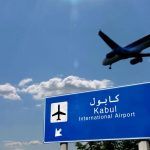In the major humanitarian crisis Afghanistan is facing, the EU has launched projects worth €268.3 million, stepping up vital support to the Afghan population. The EU support focusses on maintaining education, sustaining livelihoods, and protecting public health, including for refugees, migrants and internally displaced people. It is channelled through United Nations agencies working in Afghanistan (UNICEF, WFP, UNDP, UNHCR, WHO, IOM) and benefits the Afghan population directly. Two projects support human rights defenders and Civil Society Organisations.
Education, Health, Livelihoods
Seven EU projects, worth a total of €186 million, support health, education and livelihoods for Afghans and will be implemented through United Nations Children’s Fund (UNICEF), United Nations Development Programme (UNDP), the World Health Organization (WHO) and the World Food Programme (WFP).
- Emergency cash support to teachers to sustain children’s learning in public schools – This €50 million project implemented by UNICEF will provide the around 194,000 public teachers nationwide with emergency cash support of around €90 per month for two months during the harsh winter time. This will indirectly benefit more than 8,8 million children in the ages 6 to 18.
- School Meals Support to Girls and Boys – Implemented by the WFP in collaboration with UNICEF, this €11 million project will ensure the provision of food at school and to take home for boys and girls in primary school. For girls in secondary level, the EU will also support cash transfers for their households conditional on girls’ school attendance.
- Mitigate the health effects of the COVID-19 emergency in Afghanistan – €10 million in EU support will improve testing, surveillance and hospital facilities to deal with COVID-19, working through the WHO.
- Mitigate the effects of the COVID-19 pandemic through improved access to nutrition, water, sanitation and hygiene, and gender-based violence prevention – This €25 million project will mitigate the health and nutrition effects of COVID-19 on women and children in Afghanistan, working through UNICEF.
- Work towards the eradication of polio, which still prevails in Afghanistan – This €25 million project, implemented by UNICEF and the WHO, will allow for polio vaccine procurement and other measures.
- Food and cash for work support worth €50 million – Working with the WFP, the EU will increase food security for around 450,000 persons receiving food or cash when taking part in work programmes to boost food production.
- Sustain livelihoods, in particular for women – Working with UNDP, this €15 million project will allow around 23,000 entrepreneurs, mainly women, to receive technical and/or financial support to develop and expand their businesses.
Forced displacement and migration
The EU has launched another five projects for a total of €79 million to address forced displacement and migration in Afghanistan, Iran, Pakistan and Central Asia, working with UNICEF, UNHCR, UNDP, IOM and the Norwegian Refugee Council (NRC).
- Afghan Children on the Move affected by Irregular Migration – Implemented by UNICEF, this €15 million project will notably support unaccompanied children in Afghanistan by contributing to protection measures, basic services and reintegration. It will also work towards assuring equal access to education, protection, health and nutrition for Afghan displaced children and youth, their families and vulnerable host communities, as well as and support indebted families, reducing the number of families taking their children out of school or opting for child marriage.
- Support to Afghan refugees and displaced people in Pakistan, Iran, Central Asia and Afghanistan – This €34 million project, implemented by UNHCR, will aim to enable durable solutions for Afghans on the move, including improving access to basic services, increased economic self-reliance and protection.
- Support to Displaced Afghans in Pakistan, Iran, Central Asia, and Afghanistan – Implemented by IOM, this €15 million project will improve access to health and education, and create economic opportunities for vulnerable Afghans and their host communities in Iran, Pakistan and Tajikistan, with a focus on specific needs of women and girls.
- Support to vulnerable Afghans and host communities in Iran – In cooperation with the Norwegian Refugee Council (NRC), this EU project worth €14 million will increase access to rights, protection and essential services for vulnerable Afghans and their host communities, as well as improve livelihoods and access to sustainable income. The project will notably allow the construction and equipping of classrooms and health facilities.
- Enhancing the capacities of Surkhandarya region in Uzbekistan to educate and train Afghan citizens – This €1 million project, implemented by UNDP, will increase education opportunities for Afghan citizens, with a particular focus on youth and women.
In addition, the EU is increasing its support to Afghan Human Rights Defenders at risk and Civil Society Organisations during this very challenging period with two projects worth €3.3 million.
More projects in all these sectors are due to be launched in the coming months.
The new projects launched are a key milestone as part of the overall €1 billion EU support package announced by President Ursula von der Leyen in October 2021. The overall €1 billion package includes also €227 million humanitarian funding for life-saving and life-sustaining emergency humanitarian assistance in the following sectors: food and nutrition, shelter, water and hygiene-related activities, medical care, education and protection. The EU has already fully allocated this funding to humanitarian partners in 2021 to support vulnerable Afghans who live in the country and the region, with a focus on the specific needs of women and girls.
The EU is addressing basic needs and providing basic livelihood assistance without going through the de facto authorities. The response builds on the Council conclusions of 21 September 2021 that set out the European Union’s commitment to supporting the Afghan people, and fixed five benchmarks conditioning for any future engagement with the de facto Afghan authorities as agreed by EU foreign ministers. The benchmarks include the protection of human rights, especially the rights of women and girls. EU regular cooperation remains frozen until these benchmarks are met.
Source: European Commission – Press release
More information:
First EU measures in response to the Afghanistan crisis
New facts on asylum and migration in the EU
Afghanistan security situation. Country of origin information report





Leave a Reply